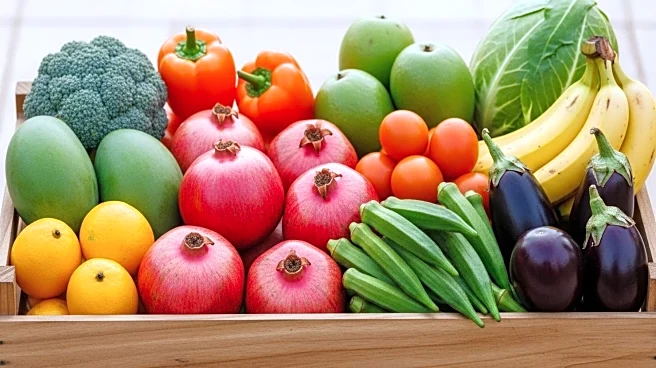What's Happening?
Global events, including the Red Sea crisis and the Russia-Ukraine war, have exposed vulnerabilities in Indian agriculture. These disruptions carry national security and geopolitical implications, influencing food systems and India's global positioning. Agriculture remains the backbone of India's economy, employing over 50% of the workforce and contributing 16% of GDP. Recent crises have impacted India's exports, with agricultural exports declining by nearly 9% in FY24. India imports significant quantities of fertilizers, and disruptions in shipping routes have caused delays and shortages. Reducing dependency on external sources is essential to maintain production stability and trade resilience.
Why It's Important?
The geopolitical tensions impacting India's agricultural strategy highlight the importance of diversifying production and exports to ensure food security and economic stability. The reliance on external sources for fertilizers and other inputs creates vulnerabilities that can affect crop productivity and export potential. Addressing these challenges is crucial to maintain production stability and enhance India's reliability in global markets.
What's Next?
India must focus on diversifying production and exports, prioritizing value-added products, and adopting sustainable practices to enhance trade resilience. Strategic investments in research and innovation can boost productivity and position India as a global leader in agricultural innovation. Addressing tariff and non-tariff barriers proactively is essential to realize the potential of India's agricultural sector.
Beyond the Headlines
India's agricultural strategy is influenced by geopolitical tensions, impacting food systems and global positioning. By leveraging its scale and technological expertise, India can influence global food security and trade flows, enhancing its international influence.










